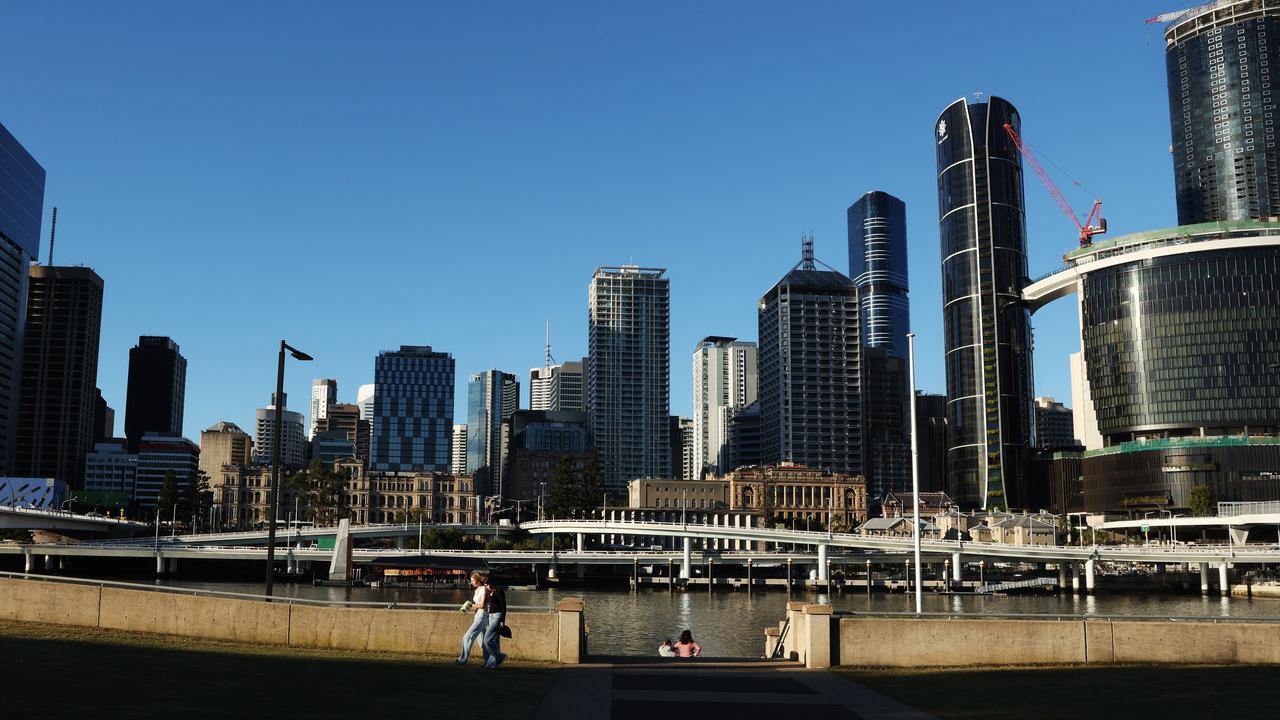How public servants book travel is under review as part of a push to make airlines more competitive
How public servants book air travel is under review in an effort to spread the benefits of taxpayer-funded flights across airlines.

Business
Don't miss out on the headlines from Business. Followed categories will be added to My News.
A review of how politicians and public servants book air travel is among initiatives announced by the federal government to increase competition in the domestic airline industry dominated by Qantas and Virgin Australia.
Although too late for Rex, which permanently grounded its jet operations last month after amassing almost half a billion dollars of debt, the measures aimed to “lower the barrier to entry” for newcomers.
The government’s long-awaited aviation white paper highlighted the need for greater competition, noting “on-time performance had been poor since the Covid-19 reopening (and) Australia’s airfares were higher than in many other countries”.
“These indicators do not point to a competitive and efficient aviation sector,” the 240-page white paper said. “Airlines are not providing the service levels Australians want or need.”
In an effort to address that, the white paper proposed several initiatives including the reform of Sydney Airport’s slot system to provide greater access for newcomers, more transparency around flight delays and cancellations, and a review of government travel policy.
The paper acknowledged that existing policy had failed to prevent government employees and members of parliament from “preferencing certain airlines when booking travel”, which “could have negative implications for airline competition”.
Transport Minister Catherine King said she wanted to make sure the “benefits of taxpayer-funded flights whether by politicians or public servants, was spread across airlines”.
“One of the things that has been raised with us is the spread of where public sector travel is,” said Ms King. “Obviously we have to look at value for money when we’re spending taxpayer money on that.”

The policy review would be undertaken by the Department of Finance by the end of the year.
Greater scrutiny of slot use and the way in which slots were allocated to airlines was also being undertaken to ensure access to Sydney Airport was fair and did not disadvantage newcomers.
Slots are the time windows airlines are granted for flights in and out of Sydney by Airport Coordination Australia, a company owned by Qantas, Virgin Australia, Regional Aviation Australia and the airport. The white paper acknowledged that slots at Sydney particularly in peak periods were critical to an airline’s success, due to the fact it was Australia’s largest gateway, servicing the biggest city.
Sydney Airport CEO Scott Charlton welcomed the continued momentum to reform slot management, which he said would ultimately benefit passengers.
“Directing the next Productivity Commission inquiry (into airports) to focus on slot rules, including the prospect of a stricter ‘use it or lose it’ requirement will also ensure that reform on the slot regime remains in focus,” Mr Charlton said.
The 56 initiatives in the white paper were generally well received by airports, aviation unions and consumer group Choice, while airlines indicated they were still reviewing the document.
Airlines for Australia and New Zealand chairman Graeme Samuel said he wasn’t sure “what barriers to competition” existed here but welcomed the push for greater transparency around Sydney slots.
“What the airlines are facing at the moment, the two majors, Qantas and Virgin, is a lot of political slander,” said Professor Samuel.
“It’s about time we actually saw what’s really occurring and those that want to throw around expressions like slot hoarding and slot rorting, well, I think this will lay bare the truth.”
More Coverage
Originally published as How public servants book travel is under review as part of a push to make airlines more competitive





